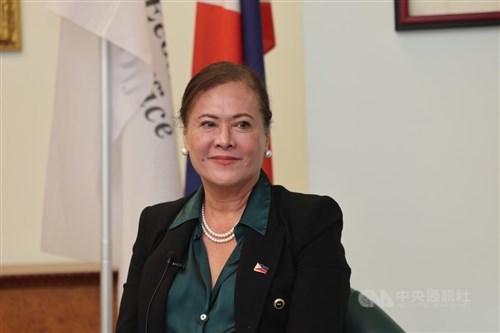INTERVIEW / NSTC in talks on communications satellite network with Amazon Kuiper
05/17/2025 06:04 PM
The National Science and Technology Council (NSTC) is in talks to collaborate with Amazon on its Kuiper project that will complete Taiwan's low-earth orbit (LEO) communications satellite network, NSTC head Wu Cheng-wen (吳誠文) said Friday.
(Full text of the story is now in CNA English news archive. To view the full story, you will need to be a subscribed member of the CNA archive. To subscribe, please read here.)
More in INTERVIEW
-
![Transcending runner-up label: Go player Yang Tzu-hsuan's not-too-late comeback]() Transcending runner-up label: Go player Yang Tzu-hsuan's not-too-late comebackAmong women currently active on Taiwan's professional Go circuit, six-dan pro Yang Tzu-hsuan (楊子萱) stands out as one of the board game scene's most representative figures.02/16/2026 10:52 AM
Transcending runner-up label: Go player Yang Tzu-hsuan's not-too-late comebackAmong women currently active on Taiwan's professional Go circuit, six-dan pro Yang Tzu-hsuan (楊子萱) stands out as one of the board game scene's most representative figures.02/16/2026 10:52 AM -
![Filipino workers' well-being, investment ties top priorities: Envoy]() Filipino workers' well-being, investment ties top priorities: EnvoyCorazon Avecilla-Padiernos, the Philippines' new top envoy to Taiwan, said her priorities are safeguarding the well-being of Filipino workers in Taiwan and deepening economic ties between the two sides.02/13/2026 05:51 PM
Filipino workers' well-being, investment ties top priorities: EnvoyCorazon Avecilla-Padiernos, the Philippines' new top envoy to Taiwan, said her priorities are safeguarding the well-being of Filipino workers in Taiwan and deepening economic ties between the two sides.02/13/2026 05:51 PM -
![Jimmy Lai's daughter slams his 20-year sentence as 'laughable']() Jimmy Lai's daughter slams his 20-year sentence as 'laughable'The daughter of jailed Hong Kong media tycoon and pro-democracy activist Jimmy Lai (黎智英) on Tuesday condemned her father's trial as "extremely unfair" and his 20-year prison sentence as "laughable," a day after the verdict was handed down.02/10/2026 03:35 PM
Jimmy Lai's daughter slams his 20-year sentence as 'laughable'The daughter of jailed Hong Kong media tycoon and pro-democracy activist Jimmy Lai (黎智英) on Tuesday condemned her father's trial as "extremely unfair" and his 20-year prison sentence as "laughable," a day after the verdict was handed down.02/10/2026 03:35 PM
Latest
-
Politics
Taiwan to prioritize special defense budget in legal review: Legislative Speaker
02/16/2026 03:57 PM -
Society
TaiDoc union launches strike campaign, demands reinstatement of fired officials
02/16/2026 03:36 PM -
Business
King Liu, founder of Taiwan bicycle brand Giant, dies at 93
02/16/2026 03:15 PM -
Society
Suspect in parcel explosion detained, held incommunicado
02/16/2026 01:27 PM -
Culture
U.S., Japanese envoys showcase New Year dishes as Year of Horse approaches
02/16/2026 12:54 PM


